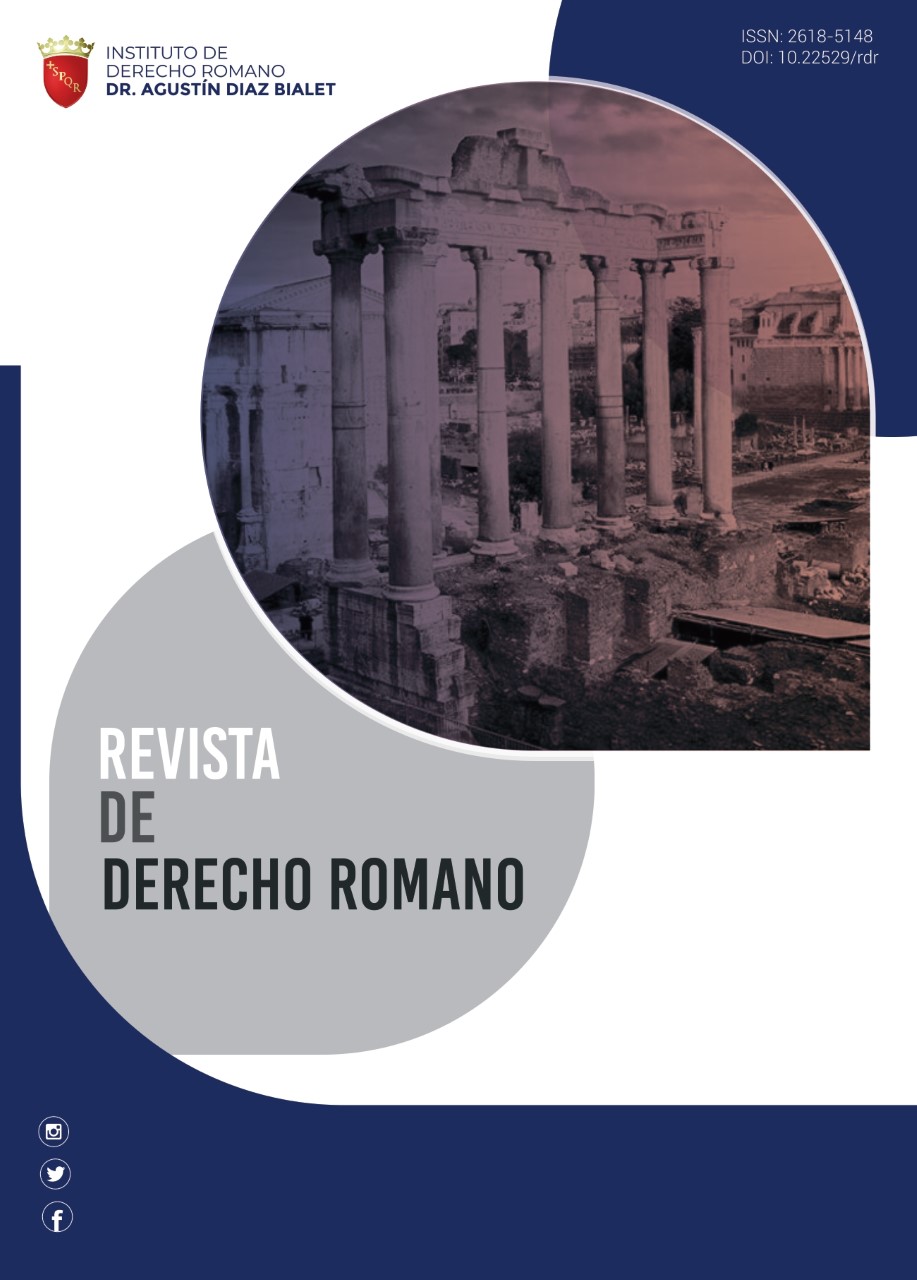La palabra monarquía y el alcance de su significación en el De Republica ciceroniano = The word monarchy and the scope of its meaning in Ciceronian De Republica
DOI:
https://doi.org/10.22529/rdr.2023(5)02Keywords:
Monarquía, De República, CicerónAbstract
El objetivo de la presente comunicación es reconstruir el significado del término monarquía, a la luz del De Republica, de Marco Tulio Cicerón. Teniendo en cuenta que dicha obra fue escrita en el período de crisis tardo-republicana, se describen, primeramente, las características de ese contexto histórico como clave para la comprensión del fin que se proponía alcanzar el Arpinate al escribir su tratado. En segundo lugar, se examinan los libros I y II de la obra en los que el autor desarrolla sus ideas en torno a la monarquía como forma pura de gobierno. En tercer lugar, se pone especial atención a la cronología de los reyes de Roma como un recurso histórico-metodológico al que Cicerón apela como parte de su argumentación en favor de la monarquía. El análisis efectuado en este trabajo permite demostrar que en su obra Cicerón conjuga una preferencia puramente teórica por la monarquía con la tradición radicalmente antimonárquica del pueblo al que pertenece y de la que él sinceramente participa. Frente a los peligros de la tiranía, cuyo máximo exponente es Tarquino el Soberbio, recomienda una forma mixta de gobierno, donde se armonicen los principios de la monarquía, la aristocracia y la democracia. Esa forma mixta de gobierno -del cual él ha formado parte- se encuentra en crisis y por eso intenta revalorizarla, con la esperanza de que la restauración de la república aún resulta posible. ABSTRACT: The objective of this paper is to reconstruct the meaning of the term monarchy in the light of Marcus Tullius Cicero's De Republica. Bearing in mind that this work was written in the period of the late Republican crisis, we first describe the characteristics of this historical context as a key to understanding the purpose that the Arpinate intended to achieve in writing his treatise. Secondly, books I and II of the work are examined, in which the author develops his ideas on monarchy as a pure form of government. Thirdly, special attention is paid to the chronology of the kings of Rome as a historical-methodologicalresource to which Cicero appeals as part of his argument in favor of monarchy. The analysis carried out throughout in this work allows us to demonstrate that in his work Cicero combines a purely theoretical preference for the monarchy with the radically anti-monarchical tradition of the people to which he belongs and in which he sincerely participates. Faced with the dangers of tyranny, whose greatest exponent is Tarquin the Proud, he recommends a mixed form of government, where the principles of the monarchy, aristocracy and democracy are harmonized. This mixed form of government - of which he has been a part - is in crisis and for this reason he tries to revalue it, with the hope that the restoration of the republic is still possible.Downloads
Download data is not yet available.
Downloads
Published
2023-12-18
Issue
Section
Artículos
How to Cite
La palabra monarquía y el alcance de su significación en el De Republica ciceroniano = The word monarchy and the scope of its meaning in Ciceronian De Republica. (2023). Revista De Derecho Romano, 5, 17-28. https://doi.org/10.22529/rdr.2023(5)02








